Over the years I’ve been writing this blog, I’ve watched hundreds of films. Some I’ve praised, some I’ve dismissed. Some films I have found just too tedious to review; they’ve not necessarily been outright atrocious films, just not films I wanted to invest the time and effort in reviewing.
Every now and then, though, especially when I’ve reviewed a film with the aim of warning people off it, someone or the other has asked me to make a list of films I wouldn’t want people to watch.
This is it. My list of ten films that I found so painful, I wouldn’t wish them on my worst enemy (well, perhaps not). They’re all, of course, from before the 1970s.
I must explain here that I have not listed films that were merely boring or predictable (as a lot of films actually end up being); even fairly mundane, humdrum stuff like the B- and C-grade action/thriller films of Dara Singh or NA Ansari may have been rather shoddy cinema, but I’ve found them mostly only a little monotonous, or at the most, unintentionally hilarious. Those are not the films I list here. In this list are not those which I merely found tedious, or not worth watching again: the films on this list are the films I actively hated.
Here we go, then.
1. Ghar ki Laaj (1960)
Why I watched it: Because of Johnny Walker lip-syncing Laila ki ungliyaan bechoon. And, to some extent, because of Sohrab Modi, who starred in this; Sohrab Modi featured in some very watchable films (especially period films), and though he’s rather theatrical, he’s also pretty impressive.
What it’s about: Shobha (Kumkum) returns from studies abroad to find that her elder sister Ranjana (Nirupa Roy) has married the son (Feroz Khan) of a widowed judge (Sohrab Modi). Ranjana’s husband is killed in a car crash and Ranjana refuses to remarry. Soon after, a gossipy neighbour starts insinuating that Ranjana and her father-in-law are having an affair. To scotch the rumour, Ranjana decides to get her sasur remarried. When no other family is willing to give their daughter in marriage to this ageing gent, Shobha steps forward. But her marriage with the judge gets tense very soon, because of Shobha’s jealousy: she starts suspecting Ranjana of having an affair with her husband.
Why I hated it: Because it is so disgusting in its unstinted support of patriarchy. That a young, well-educated woman should happily volunteer to marry a man old enough to be her grandfather (or at least fairly elderly father) is bad enough, but that not a single person in the entire film should oppose this or even question it: unforgiveable. Of course, the widowed bahu must die in the course of redeeming herself (and that too at the feet of a life-size plaster of Paris mannequin of her dead husband)… ugh. And Kumkum as Sohrab Modi’s possessive wife, the mother of his baby. Icky.
I have seen other films about marriages of convenience between people of discordant ages (Gumraah, Ek Chaadar Maili Si, Swami, etc) but none have left me feeling as nauseated as this one did, because it’s just so badly done.
2. Bewaqoof (1960)
Why I watched it: Because of SD Burman’s music, which includes some superb songs, like Michael hai toh cycle hai and Tu jaam liye jaa. Also, because it was written and directed by IS Johar, who also wrote and/or directed some great comedies, like Hum Sab Chor Hain, Ek Thi Ladki, and Dholak.
What it’s about: When the wealthy and ‘respectable’ Rai Bahadur (Bipin Gupta) is told by his obstinate mistress, a tawaif, that she is pregnant and he must accept her baby as his own, the Rai Bahadur baulks. He comes up with a solution: switch this illegitimate baby with his wife’s newborn, also born in the same hospital, the same day. The woman employed to do the switch, however, has an overactive conscience. Lots happens, the babies aren’t switched, but everybody believes they are switched. Rai Bahadur’s legitimate son Kishore (Kishore Kumar) is rebuffed by his father, who thinks he’s the tawaif’s son, while the father showers all his affection on Pran (Pran), whom he believes to be his legitimate son.
Many complications, and the enmity between the grown-up Pran and Kishore is exacerbated when Pran commits a murder and Kishore is arrested for it.
Why I hated it: While the beginning is over the top and totally implausible, at least it’s entertaining; the rest is sheer idiocy. Especially the bulk of the film, where Kishore Kumar and IS Johar (who plays Kishore’s friend, a lawyer named Johar) get up to all sorts of very unfunny tomfoolery to woo their ladies and hoodwink the ladies’ fathers. While I’ve seen (and been irritated by) Kishore Kumar’s antics in other ‘comedies’, this one was especially hard to stomach. The blatant racism, with Kishore and Johar smeared in shoe polish for most of half an hour, was outright distasteful. Even beyond that, the weird and unconvincing disguises, the pointlessness of the plot, and the travesty that was made of comedy: I was literally squirming with embarrassment through this hot mess of a film.
3. Sikandar-e-Azam (1965)
Why I watched it: Two reasons, the main one being that it was a remake of one of the most impressive Indian historical films I’ve seen, the 1941 Prithviraj Kapoor-Sohrab Modi starrer, Sikandar. Also, because this is the film of Jahaan daal-daal par sone ki chidiyaan karti hain basera fame; okay, it’s not my absolutely favourite patriotic song (it’s too sanctimonious for that, too gushing), but still.
What it’s about: The invasion of India by Alexander the Great. Alexander (Dara Singh), still a callow youth (or as callow as Dara Singh can manage) falls in love with a former slave called Cythia (Sithia? Seethia? I can’t tell; played by Mumtaz) and is forced, thanks to emotional blackmail by his mother (Veena) to give her up. He becomes king after the assassination of his father, and sets off to invade India— unaware that the faithful Cythia, having disguised herself as a soldier, has also tagged along. In India, Porus (Prithviraj Kapoor), along with his sons Kirat (Premnath) and Amar (Prem Chopra) stands up for Bharatvarsh against the machinations of the traitor Ambhi (Jeevan) the ruler of Taxila, who offers his fealty to Alexander.
Why I hated it: I am possibly a little biased, because of what Sikandar (1941) had been, and what Sikandar-e-Azam is not. While this one is all colour, and boasts of some big names, it falls terribly flat. Dara Singh is just not made for those fine speeches; he may have the build of an Alexander, but he doesn’t have the presence. That broad Punjabi accent and that somewhat naïve, bumbling charm do not make for a convincing Greek conqueror at all.
Then, there’s the jingoistic bombast of it all: the sanctimonious speeches about the impeccable purity, loftiness, ideals and whatnot of India. Yes, I know this sanctimony is pretty much par for the course when it comes to Indian historical/patriotic films, but Sikandar-e-Azam takes the cake. It’s just too sickening. Add to that a Premnath so pudgy he looks as if he’ll burst out of his armour, and some very hard-to-believe switching of raiment by Mumtaz’s Cythia, and you have a film that’s just too irritating for words. If you want the Alexander-Porus story, watch Sikandar instead.
4. Gauri (1968)
Why I watched it: Almost completely because of one song, Dil mera tumhaari adaayein le gayeen, which offers some superb views of Delhi. Also, the fact that this film stars several people whom I like a lot: Sanjeev Kumar, Sunil Dutt, Nutan, Mumtaz…
What it’s about: Blind heiress Gauri (Nutan) is married off to Sanjeev (Sanjeev Kumar) by her greedy uncle, who doesn’t inform Sanjeev that Gauri is blind. Right after the wedding, when Sanjeev discovers the truth, he runs away, deserting his bride. But Sanjeev’s best friend, Sunil, goes after him, to find Sanjeev and reason with him. Sunil succeeds, but he and Sanjeev go hunting before Sanjeev can return to Gauri—and Sanjeev ends up lost and presumably dead. Sunil returns to break the news to Gauri, who has just had her eyes operated and can now see. But because the trauma of being widowed might make Gauri blind again, her uncle persuades Sunil (who already has a girlfriend) to pretend to be Sanjeev.
Why I hated it: Because it’s so mindless. There is no good reason for people to choose the messiest, silliest path available, but they invariably do. With disastrous results, of course. And the icing on the cake is the climax. Gauri, horrified at the realization that she has been entertaining loving thoughts towards a man not her husband—and with her pati parmeshwar alive all the while, too—tries to commit suicide by jumping into the Ganga. And the Ganga regurgitates Gauri right at the feet of Sanjeev, who has obligingly been standing on the banks, toying with killing himself anyway. Ugh, ugh, ugh.
5. Pati-Patni (1966)
Why I watched it: For Sanjeev Kumar, whom I like a lot. And because the rest of the cast (Johnny Walker, Om Prakash, Leela Misra, Shashikala, Mumtaz) are also people whom I generally enjoy watching.
What it’s about: Three couples, three pati-patnis (husbands and wives). One of these is Sundari (Leela Misra in a wig and flashy sari, with a huge fake mole on her face), who’s gone all modern and fashionable, to the detriment of her husband (Om Prakash). Sundari’s ‘bad influence’ on their daughter Kala (Mumtaz) means that Kala is also modern (read flighty, shrewish and very silly): a girl who bullies her music teacher (Mehmood) into marrying her, and then makes life miserable for him. As counterpoint to Sundari and Kala, there’s the Sati Savitri Gauri (Nanda), who is married to the very upright Amar (Sanjeev Kumar) and stands by him, bearing all the trials and tribulations fate throws her way.
Why I hated it: I have seen dozens of Hindi films that had the Westernized woman = bad, traditional Indian woman = good trope. I have seen perhaps hundreds that equated ‘goodness’ in a woman with being a simpering, docile cow who valued home and hearth and devotion to husband above all else. Rarely, though, have I come across a film that was so unrelievedly, unabashedly propagating both these ideas. Pati-Patni, from pretty much beginning to end, hammers in its medieval, misogynistic ideas: the Westernized Kala and Sundari, plus their cohorts of like-minded friends (not to mention the vamp, played by Shashikala) are not just ‘bad’ by dint of being ‘modern’, but also home-wreckers, rude, ridiculous, and completely bereft of any redeeming features. Nanda’s Gauri, on the other hand, by being meek and submissive, constantly fluttering around her little shrine at home, is the ‘good woman’, who will accept being abused by her husband and suspected of infidelity, only to be grateful when he forgives her for him being an utter jerk.
This film made me see red. It was simply hideous.
5. Chandan ka Palna (1967)
Why I watched it: For Meena Kumari, and Dharmendra. Both are among the people I love to watch: good-looking, and very competent actors (Meena Kumari, of course, but Dharmendra too, when he gets the chance).
What it’s about: The love story of Shobha (Meena Kumari) and Ajit (Dharmendra), who get married early on in the story. Five years into their marriage, Shobha realizes that she is infertile, and therefore unable to fulfill her bossy mother-in-law’s fervent desire for an heir. After an abortive attempt at suicide, Shobha takes cues from a pandit, who guides her through a makeover: Shobha transforms herself into a hard-drinking, swearing, sharaara-wearing (I hadn’t known sharaaras were a sign of ‘fast’ women) harpie. Ajit bears it for a while, then finally divorces Shobha and remarries. Shobha, watching from the sidelines, prays that Ajit’s new wife will have a baby… which happens. Also, the new wife conveniently dies in childbirth. And the pandit comes forward to explain how Shobha’s ‘badness’ was all a sham, and she’s actually always been the saint. So Ajit and Shobha get married again and bring up the baby, and all is well.
Why I hated it: Do I even need to say this? That synopsis should explain it all.
Meena Kumari looks overweight and raddled in Chandan ka Palna, but that I could have forgiven if the film had been better. The sheer insensitivity and selfishness shown by these people is beyond all limits. The way the poor new wife is brought in, only long enough to have a baby and then kick the bucket, just so everybody else can be happy: oh, so not done.
(All the other films in this list I have watched fairly recently and written their descriptions just after watching the film. Chandan ka Palna I had watched several years back, and the impact of it on me was such that I just could not bring myself to watch it again. What I’ve written here is from my notes from back then).
6. Suhaagan (1954)
Why I watched it: Almost entirely for Geeta Bali, whom I usually like a good bit. When in her element, she can be delightfully bubbly and likeable.
What it’s about: The eponymous ‘suhaagan’, the ‘married woman’, is Radha (Geeta Bali), who cannot stomach life as the wife of a fairly poor man (even though she’s grown up poor herself). Radha becomes easy prey for the wiles of a ‘fallen woman’, a flamboyant neighbour named Rambha, whom Radha soon begins to envy for the obvious wealth Rambha possesses… to the extent that Radha is bhadkaao-ed (by Rambha) into running off to evil Bombay. There, of course, everything begins to fall apart, with Radha discovering, in one devastating and utterly stereotyped way after another, that the life of a woman on her own is the very epitome of danger and sleaze and immorality.
Why I hated it: The excruciatingly regressive message of a woman’s place being in her husband’s home. All of Radha’s misfortunes (and they’re considerable) arise because she cannot be content with being a Sati Savitri, a home body tied to marital home and hearth. Simply awful.
7. Parivaar (1968)
Why I watched it: Because the cast sounded interesting. Or, at least, people who might generally have acted in enough entertaining films for me to expect more entertainment here.
What it’s about: Family planning. I don’t think I’ve ever seen any other Hindi film which focused so completely on the idea, but this one does. Gopal (Jeetendra) is thrown out of his home after his widowed father remarries and has seven children with the second wife. When Gopal marries Meena (Nanda), the couple soon starts running into other problems, nearly all of them of the making of other people. Family members and friends, left, right and centre, seem to be breeding like rabbits, and it all gets rather obnoxious.
Why I hated it: It’s just too bizarre. While I think using the cinematic medium to drive home the message of family planning isn’t a bad idea, the way this film goes about it is all wrong. It takes the situation down a completely crazy path, with people getting murdered and whatnot, all as a result of letting their hormones rule them. Very weird and very idiotic.
8. Dil Ne Phir Yaad Kiya (1968)
Why I watched it: Dharmendra. Nutan. Rehman: three actors whom I’ve seen in some wonderful films, and whom I generally enjoy watching (Nutan, of course, in the late 60s, acted in some dreadful films, but still: hope springs eternal).
What it’s about: You can read a full review here, since I did review it (and it took me five days to watch this train wreck of a film). Basically, it’s about best friends Ashok (Dharmendra) and (Amjad) who are, though neither knows it, due to marry two women who are the spitting image of each other (Nutan in a double role). Ashok goes through many adventures to rescue his sweetheart, Ashu (one of the Nutans) from a local baddie, but Ashu is killed in a train crash and Ashok winds up recuperating at the home of the newly married Amjad, whose wife Shabnam of course looks exactly like Ashu. So to spare his best friend the trauma of discovering Ashu’s death, Amjad uses emotional blackmail on Shabnam to force her to pretend to be Ashu.
Why I hated it: Read the ‘what I didn’t like’ section of my review of Dil Ne Phir Yaad Kiya. Some utterly mindless adventuring happens in the first half (and more) of the film, and it’s followed by a level of bromance that made me want to hurl. Horrible, horrible, horrible.
9. Khaandaan (1965)
Why I watched it: For the cast. Sunil Dutt, Nutan, Pran, Mumtaz, Om Prakash, Lalita Pawar, Manmohan Krishna, Helen… lots of great names, lots of people whom I’ve seen in some wonderful films.
What it’s about: A joint family, headed by two brothers. The elder brother (Om Prakash) and his shrewish wife Bhagwanti (Lalita Pawar, who else?) have no offspring, and Bhagwanti, who’s very bitter about this, is delighted when her nephew Naurangi (Pran) comes to live with them along with his sister Neelima (Mumtaz). Bhagwanti’s younger nephew Shyam (Sudesh Kumar) falls for Neelima, and the nasty Naurangi gets ready to get his grubby paws on the family’s property. Meanwhile, Shyam’s elder brother (Sunil Dutt), who was paralyzed down one side after being electrocuted as a child, gets married to their orphaned maidservant, Radha…
Why I hated it: I have seen a lot of overly melodramatic films. And films with OTT villains. And films with mad medicine at work. Khaandaan, though, takes the cake. There is a weird blurring of (purported) comedy and villainy, with Naurangi going around with a Hitlerian moustache and haircut and really irritating mannerisms; and the ‘good guys’ (played by Om Prakash and Sunil Dutt) being as crassly insulting as the baddies (Om Prakash, in one breathtakingly crude dialogue, calls his childless wife a “sookhi nadiya”, a dry river).
Everybody in this ghastly film falls into one of three categories: evil; good-hearted but abysmally gullible and/or outright stupid; and good-hearted but foul-mouthed. The goodie-goodies spend most of their time being stupidly self-sacrificing, or weeping buckets (“kitna barsaati khaandaan hai,” comments Naurangi at one point, and this I completely agreed with), and the climax has one crazy bit of medical science at work that left me gaping.
Yet another late 60s Nutan film that is best avoided.
10. Aankh Micholi (1962)
Why I watched this film: Because I have a soft spot for suspense films (it’s one genre in which I will explore pretty much any film I come across). And (yes, I agree this doesn’t make much sense, but still), because the last suspense film I had watched, starring Mala Sinha (Apradhi Kaun), had been very good.
What it’s about: A dancer, Nayantara (Mala Sinha) finds herself being hounded by a stranger (Shekhar) who insists he’s her husband. Various attempts are made on Nayantara’s life (someone shoots at her, a random dog dies after eating food destined for Nayantara, someone tries to run her down, and then when she’s recuperating in hospital, someone tries to give her a lethal injection). All the while, the stranger-husband alternates between romancing Nayantara and trying to convince her he’s not aiming to kill her. Some shifty-eyed strangers seem to be keeping a close watch on goings-on, and there’s a two-year old mystery, involving a girl named Mala, who ran away seemingly after murdering her boss, a Lady Hiramani. As it happens, everybody seems to think Mala is the same as Nayantara…
Why I hated it: Mostly because it was such a colossal let-down. This film started off well enough; in fact, for the first half-hour or so, I thought it was shaping up to be an adaptation of the brilliant Chase a Crooked Shadow. Then it went off the rails, and by the time it was half an hour from the end, I was having a tough time continuing to watch it. There is a lot of hectic mysteriousness in the beginning; attempts at murder, odd events, allusions to secrets, and so on. In the second half, some of this is explained, but a lot of it is simply forgotten about. Why was the Shekhar character pretending to be Nayantara’s husband? How was the food poisoned? Why is Inspector Jagdish (Jagdish Raj, who else) so hot on the trail of a man who turns out to be his colleague?
And more. Aankh Micholi gives one the impression of a film that was made with a sort of laundry list of masala film tropes to refer to: songs, tick. Romance, tick. Mysterious stranger, tick. Goofy servants, tick. Faithful hound who recognizes a long-lost person masquerading as someone else, tick. Murder, tick. A large inheritance, tick. Red herrings, tick. What didn’t get ticked was the logic, the motives, the how and why. This one’s as full of holes as a sieve, and even the good music (composed by Chitragupta) isn’t enough to redeem it.
That’s my list of films that I wouldn’t watch again (okay, maybe if I was paid a million, but not otherwise). Some (Bewaqoof, Aankh Micholi, Sikandar-e-Azam) do have a few fairly good songs, but overall, these are films that I found so vastly annoying that, even for those songs, I wouldn’t watch them again.
Which films would you put in this list?
And, PS. Wanting more? Check out my soul sister Anu’s blog post, which she posted simultaneously, on how she’d rework some classic Hindi films.

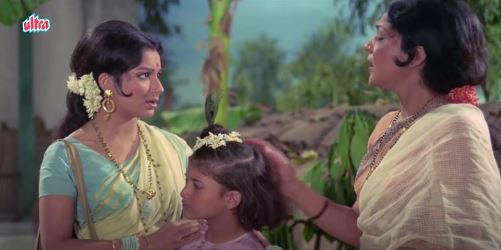
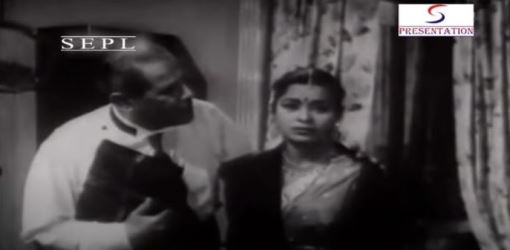
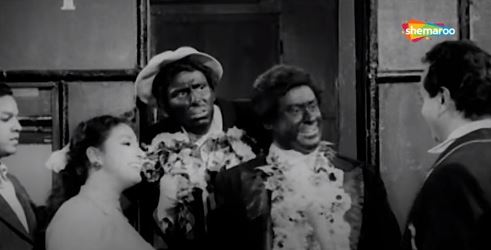
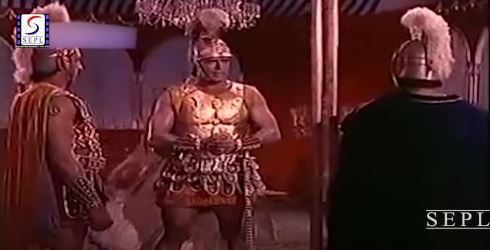
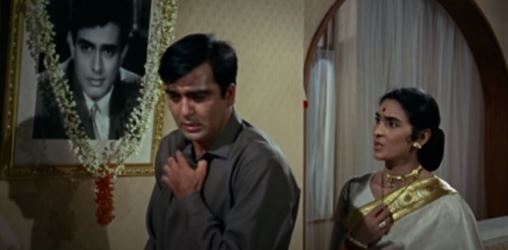
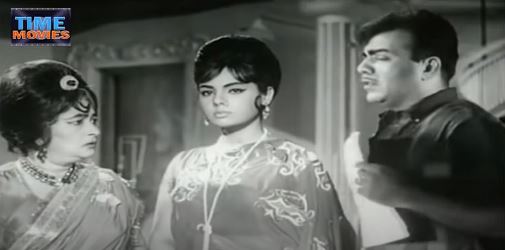
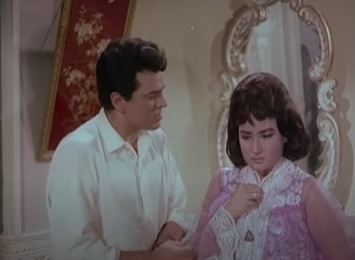
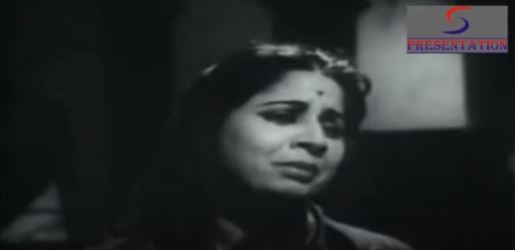
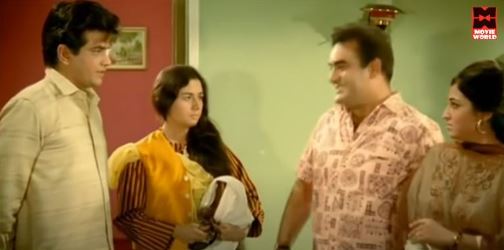
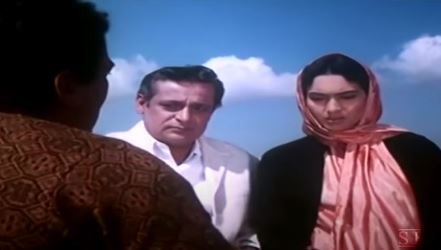

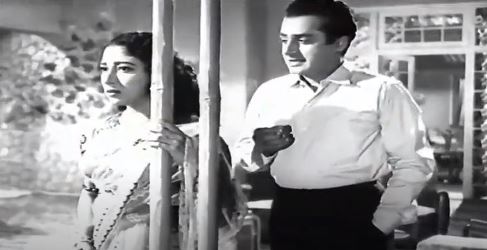
Nice written article though I might not agree with all films Wonder why you have left out all Dara Singh films A few like Watan se Door to be specific was well made but for Dara Singh in the lead role
LikeLike
I did mention the Dara Singh films and the NA Ansari films in the introduction, explaining why I didn’t include them: mostly because I just find them either monotonous or unintentionally funny, not outright irritating.
Also (though this wasn’t explicitly stated, but it was a criterion for my selection), the films listed are the ones which I began watching with some expectations. The cast was good, some of the songs were good (not all the songs: I might forgive an otherwise just average film if it had excellent songs) and so on…. but the film itself was regressive, or so illogical that I couldn’t bear it. With Dara Singh or NA Ansari, I am never disappointed! – I always begin one of their films with rock-bottom expectations.
LikeLike
I would have certainly included Navketan’s Prem Pujari in the list Songs by Neeraj/SDB promised cinegoers a lot but Director messed up the plot by handling it
LikeLike
Oh, yes! I totally agree. Prem Pujari was terrible, even though its songs were lovely, and the cast/crew had done some great films together.
LikeLike
One movie I remember very easily was ‘Man Mandir’ starring Sanjeev and Waheeda.. I remember this movie for a classic scene when a young doctor takes the pulse of a young female who has fainted before him and pronounces ‘ye Maa bannewali hai’!
LikeLike
Dear Madhu,
You are a brave soul taking on this subject!
You are going to be flooded with posts!
“Zamaana Deewana” is a film that I am adding to the list.
You’d be surprised at the credits!
https://www.imdb.com/title/tt0115042/
“Zamaana Deewana” (1995)
Directed by Ramesh Sippy
Written by Robin Bhatt, Javed Siddiqui
Produced by G. P. Sippy
Cinematography by K. K. Mahajan
Edited by M.S. Shinde
Music:
Songs: Nadeem-Shravan
Score: Naresh Sharma
——————————-
Starring:
Shah Rukh Khan
Raveena Tandon
Jeetendra
Shatrughan Sinha
Anupam Kher
————————————–
Production company
Sippy Films
Release date
28 July 1995
—————————————————–
I am not making a comment on the film myself,
(for obvious reasons), but am giving the
LINK to Reviews of “Zamaana Deewana”
https://www.imdb.com/title/tt0115042/reviews
A mixed lot, but most have panned this film….)
——————————————————————
(From Praba: I remember that a part of the film is located
in Mauritius, which looked quite stunning…)
LikeLike
I haven’t seen this one, Praba, and I don’t even recall hearing its name. :-) I have to admit I used to be quite a fan of both Shahrukh and Raveena Tandon once upon a time, but then began to lose patience with both of them… and looking back at the 1990s, I don’t think of too many films that I really enjoyed.
LikeLike
“a young doctor takes the pulse of a young female who has fainted before him and pronounces ‘ye Maa bannewali hai’!”
LOL! That reminds me of Ek Phool Do Maali, which was on my shortlist for this post. In that, Sadhana’s character goes to a doctor, and eavesdrops on his conversation (his waiting room and office are the same) with another young woman. The doctor takes this woman’s pulse, asks about her symptoms (nausea is what I recall), and pronounces her pregnant, so Sadhana’s character, who also has been feeling sick, self-diagnoses herself as pregnant.
Thank you for warning me off Man Mandir. I like both Sanjeev Kumar and Waheeda Rehman, so I might have watched it otherwise.
LikeLike
This movie was a complete letdown but it also had 2 very melodious songs
1. Aye meri aankhon ke pehle sapnay
2. Jaadugar mere saiyaan.
LikeLiked by 1 person
Yes, very nice songs, both of them.
LikeLike
I saw Man Mandir banking on Sanjeev Kumar and Waheeda and the catchy Lata Kishore duet Jaadugar tere naima……and did I regret it!! Immensely avoidable.
LikeLike
Thank you so much for warning me off that! Noted.
LikeLike
Love love it. Great idea.
LikeLike
Thank you!
LikeLike
You’re a kind soul, Madhu to issue this PSA. :-) Sadly, I’ve seen all the movies mentioned so your warning comes too late to save me. :-D You’ve noted the frequency with which Nutan appears on the list, but Sanjeev Kumar seems no less ubiquitous. As a matter of fact, I’m reminded of another Sanjeev K movie that features on my actively hate/never watch again list – Khilona. As bad as SK’s actions are in the movie, the film’s determination to acquit him of all responsibility/culpability for said acts is far worse. :-(
LikeLike
I totally agree about Khilona – oh, yes. Why this man should be so made out to be the victim and therefore to have every deed of his forgiven – appalling. It’s a shame Sanjeev Kumar acted in so many of these ridiculous films; he was such a good actor that I cheerfully end up watching pretty much anything he stars in, and then… boom. Something like Pati-Patni, Gauri, Khilona.
LikeLike
Great post idea. We’ve all made the mistake of watching a movie because of the songs and the movie then being completely different from what the songs suggest, I think.
Have you really not reviewed Gauri? It sounds so familiar, but it could be that I tried to watch it and gave up.
LikeLike
Yes! I’ve watched so many films just because one song was good, only to have the film turn out to be a dud – you’d think I’d have wisened up by now. But no, I still do it. :-(
I haven’t reviewed Gauri, though I watched it only last year. It was just too silly and tiresome and OTT melodramatic for me.
LikeLike
We’ve all done it and we never learn lol.
I didn’t get to the suicide in Gauri but I think i just couldn’t roll with the deceit. That kind of plot is okay for me if it’s really insane like in Sharmilee or something but it was just weird and off-putting as I recall.
LikeLike
True! Somehow in Sharmilee, everything was so nuts, I was okay with it. Here, I just found it too hard to stomach.
LikeLike
Nutan and Waheeda Rehman despite being such amazing actors did make some harebrained choice of starring in the most awful movies in the late 60s. Most of these movies, remake of successful films from south were about the virtues of a good Indian woman and the ill effects of the western influence on our pious culture .
I want to add “Man ki Ankhen” with Dharmendra and Waheeda Rehman to this list where feisty Faryal had to learn the lesson on how to be a good doormat from the always angelic and utterly diabetic Waheeda Rehman.
LikeLike
You are so right about Nutan and Waheeda making some ‘harebrained choices’ (brilliant description!) when it came to choosing films in the late 60s. Both of them worked in some truly frightful films. I haven’t seen Mann ki Aankhen, so thank you for warning me off that!
LikeLike
I thought you were posting tomorrow. :) This list is barely scratching the surface, isn’t it? Like Shalini, the PSA comes a bit too late for me, but ah well. I had fun reading your reactions. You should join me and Shalini in a watchalong some time. :) I bet we will have fun.
I will add Bahaar and Bhabhi to this list. :)
LikeLike
“I thought you were posting tomorrow. :)”
No. 27th, Saturday? That was yesterday.
Bhabhi I tend to forgive because of the songs (several songs there which I like a lot), but yes, I do know what you mean; it ticks all the boxes when it comes to tedious, melodramatic, patriarchy-supporting rubbish. Bahaar, after I read your review, I decided I would steer clear of! As it is, Karan Dewan is not a favourite of mine.
I am not the best choice for a watchalong partner. I watch films mostly only 15 – 30 minutes at a time, and during that time, I don’t like any distractions, no comments, no chatting, etc. I really am most anti-social in that sense. :-(
LikeLike
27th is today, woman! Sunday! But you’re forgiven. :)
I don’t like any distractions, no comments, no chatting, etc.
Oh, man! See, if you had us to join you, even these films would have been bearable. :) :)
LikeLike
I just realized why I was under the impression the 27th was on Saturday. Because you sent me a mail asking me if we should post “on the 20th? Saturday?” I assumed, without checking, that Saturday = 20th, therefore the following Saturday = 27th! Aaarrrgh. I’m feeling like such a fool. Sorry, Anu, my brains are mush. :-(
LikeLike
Join the club. :)
LikeLike
I was a founding member of the club! :-D
LikeLike
An important public service! Unfortunately too late to save me in a couple of instances ; D
By the way, it is out of your usual time period, but I think you might enjoy “Humkadam” (1980). It takes the same basic set-up that happens to Nanda’s character in “Pati Patni”–becoming the main financial support for her family, who resent and are suspicious of her for it–but resolves it in a much more humane and respectful manner. Rakhee plays the main character.
LikeLike
“Unfortunately too late to save me in a couple of instances”
Oh. dear. Anyway. you’re better off than Shalini, who’s watched all of these! :-D
I have found and bookmarked Hamkadam. Odd that I hadn’t heard of it.But Raakhee and Parikshit Sahni? Yes!
LikeLiked by 1 person
“Humkadam” is apparently based on Ray’s “Mahanagar” (which I haven’t seen). Probably most cinephiles simply remark on the original rather than a Hindi retread from nearly twenty years later.
LikeLike
I have begun watching Hamkadam, and am liking it a lot – so far, it’s been a pretty good remake of Mahanagar (which, by the way, I liked a lot – I watched and reviewed it just last year, so it’s still very fresh in my mind).
LikeLike
Yes, I remember Humkadam rather favourably. Haven’t watched it for years, though.
LikeLike
I first heard of “Humkadam” shortly after my friend Filmikudhi and I had had a discussion about how lovely Rakhee is in middle age. We had been wishing together that there were more films featuring her as a main character and not just in mostly wordless mom/auntie roles–and then this one fell into my lap a couple of days later! I watched without subtitles, so surely I will have missed details, but I very much enjoyed it.
LikeLike
I am nearing the end of Hamkadam, and I think it’s a good remake – of course Ray’s original is much more subtle (the rest of the family, for instance, don’t pass snide remarks, but from their expressions, and isolated actions here and there, you can tell they’re deeply distressed by the woman’s behaviour). But, given how Hindi cinema tends to beat its audience over the head with the message, I guess this is par for the course. Still, though, I think it’s a lot more restrained than stuff like Pati-Patni.
LikeLiked by 1 person
Oh!
The post was interesting! Fortunately I haven’t watched any of the movies, except a small portion of DNPYK.
Thank you for the post.
:-)
LikeLike
Glad you liked this, Anupji! And lucky you, to have not seen any of these, at least not in totality. :-)
LikeLike
Madhuji, I was happy to find Bewaqoof on your list! The film is downright bizarre. Another movie which has lovely songs – especially ghazals of Madan Mohan – which becomes the reason for watching it is Adalat. But it is extremely retrograde. I was at my wits end when I watched the movie. The dialogues are disgusting; they literally make you cringe! (pati ko patni ke sharir ke tukde tak kar dene ka adhikaar hain !!).😏
LikeLike
Yes, Bewaqoof is such a bizarre, and just plain old racist film. As it is, I find a lot of Kishore Kumar films very irritating; this one was even beyond irritating.
I agree about Adalat; its songs are so beautiful, but the film itself is really regressive. (By the way, there’s a similarly disgusting dialogue by Kumkum’s character in Mr & Mrs 55, in which she basically justifies her husband’s beating her. Ugh).
LikeLike
Great list as usual. Unfortunately, I have watched most of these movies. In my defense, this was when I was a bored teen with a cable connection. 😅
Re “Gauri”, it is a remake of the Tamil “Santhi” (1965) and that movie’s ending is even more spectacularly terrible, in my opinion.
Interestingly (or not), when one of my favorite sitcoms aired its finale, I immediately remembered “Chandan Ka Palna”! I rarely get angry at TV shows. That sitcom, with its chandan-ka-palna-esque ending, made me see red!
LikeLike
“when I was a bored teen with a cable connection.”
I hear you! Many of the films on this list owe themselves to my having watched them in that same period in my life. :-D One film which was so bad, I haven’t even been able to find a mention of it on IMDB, was something called Fauji. No known names, nothing; but my sister and I watched it on DD because there was nothing else to do. It was simply horrible.
Thank you for warning me off Santhi. And which was this sitcom with the Chandan ka Palna-esque ending? I don’t watch any Hindi shows, but just curious.
LikeLike
Nah I don’t watch Hindi shows either. It was an American sitcom. Although it has been almost a decade since its series finale, am not mentioning its name since it may constitute as a spoiler.
LikeLike
Ah, okay. I have to admit I’ve even left off watching American shows. The only shows I do watch – and those mostly long after they’ve aired – are Korean dramas.
LikeLike
What a magnificent idea for a top-ten list! Madhu, you’ve honestly outdone yourself, kudos! Loved every bit of it. And am happy to let you know, I’ve not seen even one of them. Perhaps that’s not strictly true. I do recall watching on my grandmother’s old black-and-white set a movie with a (shoe)polished Kishore Kumar masquerading as a boxer called Bom Bom and pasting the stuffing out of Pran. His sidekick, similarly blackfaced and -bodied, called himself Tom Tom. Would that be from Bewaqoof?
I suggest one addition to this list: Shart (1969), which you’ve already reviewed here. If there ever was a movie I couldn’t make any sense of, it had to be this one.
LikeLike
Yes, that is Bewaqoof. So racist, so tiresome, it’s a shame SD Burman wasted such good music on this film.
Shart, yes: I think (like pretty much all of NA Ansari’s films) this falls into the Aankh Micholi category of bad-ness as far as I am concerned: it’s not melodramatic bad, not regressive bad like most of the films in this list, but sheer badly plotted bad. Illogical and stupid.
LikeLike
That some compilation Ma’am.
I wonder how you will squeeze in the current lot if you ever plan to compile something on Bollywood from say last 10 yrs.
LikeLike
I wonder! :-D But then, given that I watch so few recent films (and those only when they’ve come highly recommended by people whose taste in cinema I rely upon), I suppose that’s a hypothetical question.
LikeLike
Madhuji,
An enjoyable post! Its not easy to make such a list.
My watch score here is 8/10
For me, the worst ones from of the list are Chandan Ka Palna and Parivaar.
The ones that I have luckily not seen are Suhaagan and Ghar Ki Laaj.
However, I had the bad luck of watching Ghar Ki Laaj of 1979 ( a terrible family drama starring who else but Sanjeev Kumar ). and Suhaagan of 1986 ( where Sridevi strays and leaves her husband Jeetendra, falling for the rich Raj Babbar and is then made to pay for it).
Good to see Khilona and Man Ki Ankhen mentioned in the comments.
i would like to add –
Kanyadan 1968 , which I had seen solely for the songs but turned out to be a weird social melodrama about child marriage.
Devi 1970 – Barring a couple of nice songs, it is just one more terrible Hindi family drama from South and not surprisingly stars Nutan and Sanjeev Kumar!!
And yes, Chhoti Bahu, whose screen shot you have posted at the beginning. It was just too much to put up with Sharmila Tagore’s character.
LikeLike
Thankfully, I don’t recall watching the later Ghar ki Laaj and Suhaagan, though I can well imagine that they must be quite painful. And I totally concur with the other films you’ve listed – sadly, I have seen all of them, and yes, they’re dreadful.
LikeLike
I would add House No. 44 with Dev Anand.
LikeLike
Yes. A friend and I were discussing Dev Anand’s films on Facebook, and agreed that he had his fair share of really irritating films. House No 44 is definitely one of them, though it does have some great songs.
LikeLiked by 1 person
Chori Chori, Raj Kapoor, Naris, deserves to be in the list, though film has nice music but story and acting was so monotonous that I forced to shut off my DVD after 15-20 minutes.
On the other hand Khandaan does not deserve to be in the list, the film has some fabulous songs, and overall the film was somewhat entertaining and not as bad as you portrayed, barring last 20-25 minutes of circus fiasco.
And surprisingly you have not yet watched Mera Naam Joker. Will love your review on this.
LikeLike
Let’s agree to disagree on that. After all, beauty lies in the eye of the beholder; film appreciation too is very subjective. I, for one, found it very difficult to sit through Khaandaan (and I hate the songs), but I like Chori-Chori a lot. It’s all subjective.
Nothing surprising about me not having watched Mera Naam Joker. I have read the book, and it didn’t appeal to me one bit. Plus Raj Kapoor is one of those people whom I can just about bear in some films; in most films, I find him very irritating. So I wouldn’t want to inflict Mera Naam Joker on myself knowingly.
LikeLike
Aaahhhh!!! What a mind- blowing, brilliant topic for a post!! Though, I feel this should have been part 1, no? Matlab, there *must* be so many more- don’t be so kind, Madhu. Unleash the hate.
I don’t remember many names, but I have sat through my share of very bad Dev Anand movies from 70s onwards, some Nutan movies (maybe the ones you mentioned? I can’t seem to recall!), and some Sanjeev Kumar movies (oh good lord! ‘Pati, patni aur woh’ and ‘Baat ban jaye’!).
So it was 2000 and I was in Grade 11; we had just shifted back to Delhi and for some reason my parents refused to get cable TV. I was alone, miserable, trying to make friends but that age is tough. When I was not reading, I would sit in front of DD and then watch *everything* that came on. Sometimes, my parents would join in but more often than not, I was alone- if they sat with me more often, they may have been worried about my mental health considering I was committing to memory some very dramatic dialogues, like, “ab toh dukh hi mere dost aur ghum hi mere saathi hain”.
Now that mindless DD watching has been replaced by mindless watching on OTT, which transcends languages so I do end up watching terrible Korean/ Thai dramas and movies, too!
LikeLike
I read your post to my parents at lunch today and it lead to a very lively discussion about some very, very bad movies. Comes as no surprise- they’ve seen most of the films listed here.
Dad thinks Sikander-e-azam and Paarviar were not that bad but mom agrees with you.
But she would like you to add Choti Bahu to the list too.
LikeLike
Oh, yes, Chhoti Bahu is terrible. Sharmila Tagore (whom I usually like) made me grit my teeth in this one. But it’s there, somewhat, in the form of that first screen grab. :-)
And yes, I too have fond (?) memories of mindless watching of all sorts of rubbish, way back when we just had one channel of Doordarshan and little else to do. I remember watching Krishi Darshan and Graameen Bhaiyon ke Liye, and films like Fauji (so horrendous, it’s not even on IMDB) and Jal Bin Machhli. If I made a list of all the frightful films I watched back then, it would go on and on… thankfully, I’ve forgotten a lot of them.
LikeLike
What a delightful post!
I would add Bahu Begum to this. I absolutely loved the songs ‘Hum Intezaar Karenge’ and ‘Duniya kare Sawaal’
Old Muslim Socials with their najaakat are always good to watch.
But Bahu Begum is ridiculous. That somebody can fall for Pradip Kumar itself is a mystery to me but forcing Meena Kumari’s friend to accept Nikaah on her behalf,
sending empty palanquin to her marital home, husband and sis-in-law maintaining charade of unwell Bahu Begum for khandan ki izzat is too much.
End takes the cake. I don’t mind that lovers must be united and forced marriage (the one which did not take place) must end.
But why poor Ashok Kumar has to burn his ancestral haveli down? I don’t remember whether he himself perishes in that fire ( watched movie long long ago)
If he would done it in a fit of rage, I can still understand but he does it so that nobody can point finger to Meena Kumari.
This movie also emphasizes the message that his beloved sister who is now married should not look back at all,
that her marital home is the only place for her and she does not need a supportive brother or place she can call her home if need be.
AK could have divorced MK and remarried to someone nice ( Sadhana probably) and all could have lived happily in their respective homes.
Or PK could have found someone suitable(no I won’t wish this fate on Sadhana) and married , MK could have realized her husband’s love for her and stayed with him.
But no, this was not to be. Seems seeking happiness for oneself is a selfish act and sacrifice was the order of the day.
LikeLike
“That somebody can fall for Pradip Kumar itself is a mystery to me” True, true, and yet many did and he got some lovely songs too.
AK dies in the fire. If he had survived, the burning of the house would have served no purpose to the plot whatsoever, na.
There was a movie, Woh Saath Din, which had this kind of plot line, after a fashion. The girl is forced to give up her love and married off to a widower who has a child. The widower tries to re-unite the two lovers but the girl then says “no, no, how I can do this to my suhaag. Nahiii! I will stay back and serve you.” So the idea of the woman being ping ponged is quite common in hindi movies.
Also, in Bahu Begum, wasn’t it that during the wedding, her friend gasps to find MK missing, and that gasp is taken as ‘qabool hai’ or was that another movie?
LikeLike
Yes.. Poor AK dies in the fire. I guess he was always unlucky in love whenever paired against MK.
LikeLike
Also, unlucky in love when the other man is Pradeep Kumar! There are several films with this trio – AK, MK and PK – with AK always drawing the short straw.
LikeLike
AS, thank you. Yes, Bahu Begum was pretty irritating,what with the ridiculous idea that the MK character is considered married just because she sort of nodded (even if in the act of fainting) when asked if it was qubool. Come to think of it, all these films where people consider themselves ‘married’ even if they’re impersonating another, always baffles me. You cannot be legally married under another name, no?
LikeLike
Actually MK is not present in her haveli when her marriage is taking place. Her friend Zeb Rehman responds with a “huh”(?!!) when MK’s father pleads her to do something (& literally touches her feet) when the maulvi is asking the question “qubool hai?” Her response is assumed as a “haa.” Dramatic but hilarious.
LikeLike
Completely bizarre!
LikeLike
That is quite a list. I didn’t mind ‘bewaqoof’ that much and ‘aankh micholi’, which I’ve not seen, is intriguing. Agree with most of the rest . was half expecting ‘Deedar 1951’, though personally I’m fine with such films in the 50s. Its in the 60s when color took over that such films become hard to watch.
also no Shama Parwana (1954) mentioned here. wonder how it has 7/10 on imdb. Still remember your review of it which started with “If you like Shammi Kapoor, don’t watch this film”.
Other films I’ll add would be ‘Do Badan’. ever seen that?
Seeing Sanjeev Kumar mentioned here, have to recommend ‘Manoranjan 1974’ the Shammi Kapoor directorial , which was exactly opposite of the films mentioned in the comments. way ahead of its time and has career best (yes!) performance from Zeenat Aman. pls. refer the review at memsaabstory. Though the film is not for everyone I guess.
LikeLike
I did think of adding Shama Parwana here, but barring the end (which was truly a monumental disappointment!) it wasn’t a dreadful film. Most of the films I’ve mentioned here are the type that made me squirm for at least half the film. The sort of thing one wanted to turn off.
I agree with you about “Its in the 60s when color took over that such films become hard to watch.” – so true! I don’t know what it is about bad colour films, they tend to get really bad.
I have seen Manoranjan recommended several times (and I remember Greta’s review of it very well), but I’ve not got around to it yet. Someday, perhaps.
I have seen Do Badan, but it’s been so long, I’ve forgotten most of it except that it was very weepy. And now I don’t have the time or the energy to invest in rewatching something that isn’t guaranteed to make me smile!
LikeLike
If you are nauseated with this ‘Ghar Ki Laaj’, you might actually puke at ‘Waaris’ starring Smita Patil, Amrita Singh, Kulbhushan Kharbanda essaying the roles of Nirupa, Kumkum and Sohrab respectively. The former at least had the intention of proving Nirupa’s innocence where in Waaris had purely materialistic view of producing an heir for the estate or more specific ‘the land they own’. Basic legal study could have introduced them to the fact that a widow is an heir.
‘Ek Chaadar Maili Si’ also depicts marriage of convenience but how beautifully it is done and ably portrayed by Rishi and Hema. Incidentally Kulbhushan is Hema’s dead husband in that. What’s with Kulbhushan and marriage of convenience one wonders.
Bewaqoof: Uggh I hate the premises that you happily visit the concubine but shun the child born out of wedlock, and then have audacity to hand over another innocent child to a greedy person with a future one would rather not envisage.
always angelic and utterly diabetic Waheeda Rehman. >>> haa haa haaa. Well said
LikeLiked by 1 person
Oh, God. Waaris sound horrible. As it is, I don’t much like the films of the 80s and 90s, but that is gross. That said, I agree with your words about Ek Chaadar Maili Si: it’s a similar theme, but sensitively portrayed, and believable. That’s one film from that era which I like a lot!
LikeLike
johny walker comedy has killed even very nice films like chaudvin ka chand. ChoriChori is very bad but the music is simply divine. Great songs like aajaa sanam and yeh raath are marred by herro’s finger twiddling. I recently saw the bengali film featuring uttam kumar and suchitra sen. How wonderfully more realistic anc sweet!
LikeLike